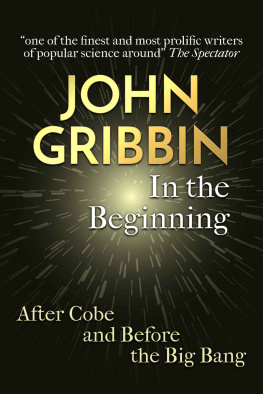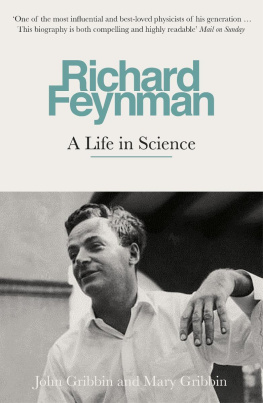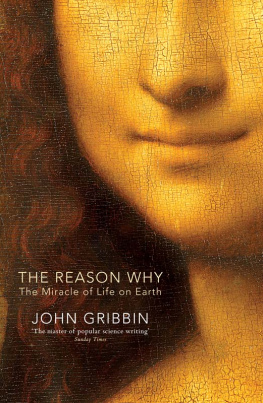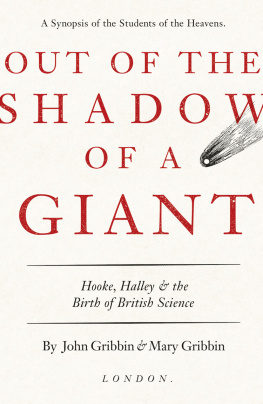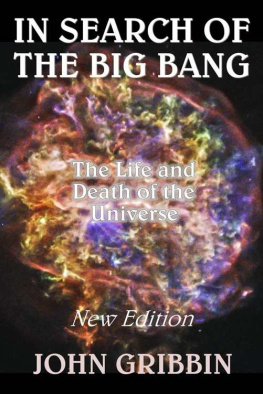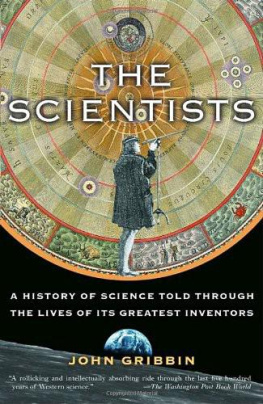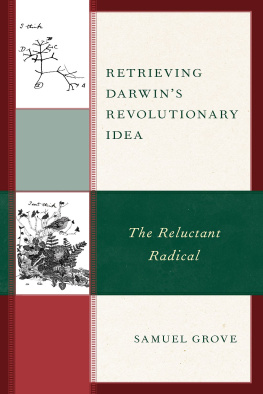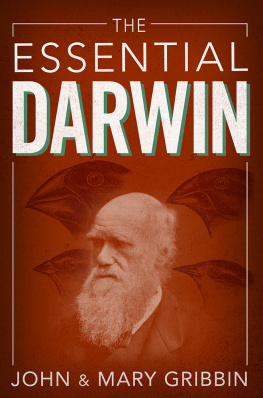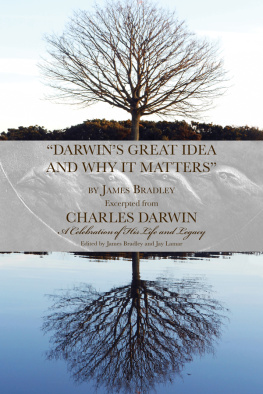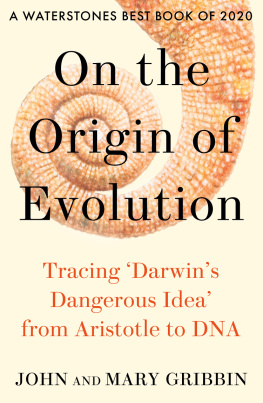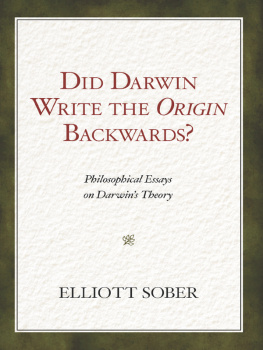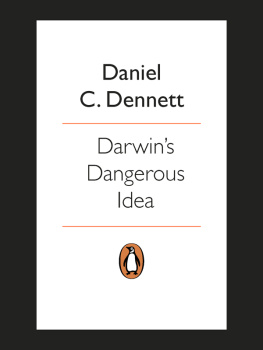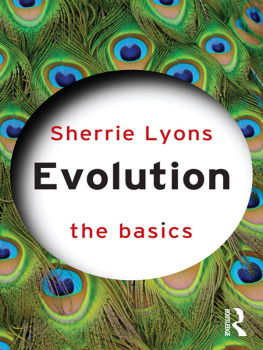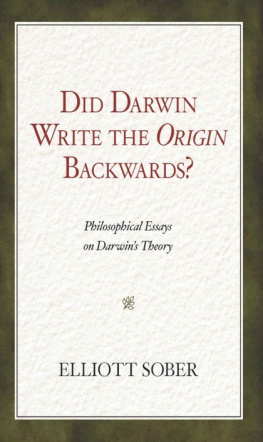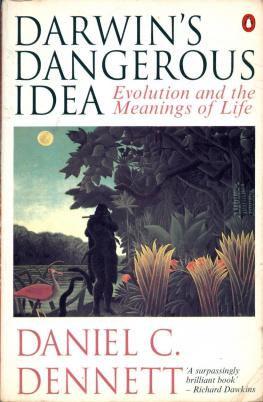We thank the Alfred C. Munger Foundation for financial support, and the University of Sussex for providing us with a base from which to work.
THROUGH A
GLASS, DARKLY
In nineteenth-century Europe, the idea of evolution was revolutionary because it overturned the established Christian tradition of an essentially unchanging world in which everything, including the forms of living things, had been fixed by God. This tradition actually predated Christianity. In Ancient Greece, Plato, his student Aristotle and the Stoics all taught that the forms of all living things were fixed by the gods. Platos philosophy was based on the idea of essence. He argued that the essence is the perfect embodiment of an object. There is, for example, an essential, perfect triangle, but any triangle we can draw on Earth is only an imperfect approximation to the essence. In the same way, each kind of plant or animal has a God-given essence. There is an essential horse, a perfect example of its kind, which incorporates all the characteristics of horsiness, but any living horse on Earth is only an imperfect representation of the essential horse, which is why horses differ from one another. But a horse could never be changed into, say, a zebra, any more than a triangle can be changed into a square.
Aristotle, who lived from 384 BCE to 322 BCE, developed this idea further, and was particularly influential on later generations of Christian thinkers because much of his writing was preserved. It was Aristotle who gave those thinkers the idea of a great chain of being, or a ladder of life, in which different kinds of life on Earth are placed in order of their complexity (with human beings, of course, at the top). He stated that the properties of living things showed that they had what he called a final cause, meaning that each variety had been designed for a purpose. But what is equally interesting for us is that Aristotle took the trouble to reject the ideas of his predecessor Empedocles (c. 490 BCE to 430 BCE), who had put forward the idea that the forms of living things might have originated by chance. If Empedocles was important enough to be noticed in this way, his ideas must have had some contemporary influence. This was not a theory of evolution, but in a sense it did involve the idea of natural selection. Aristotle explained the process, but only in order to say that it was nonsense and absurd. After pointing out how front teeth are sharp and adapted to cutting food, while back teeth are broad and adapted to grinding, he wrote that it may be said that this is not by design, but because the:
... arrangement came about by chance; and the same reasoning is applied to other parts of the body in which existence for some purpose is apparent. And it is argued that where all things happened as if they were made for some purpose, being aptly united by chance, these were preserved, but such as were not aptly made, these were lost and still perish, according to what Empedocles says.
Aristotle dismisses this as impossible such things could not be produced by fortune or chance. But what he is actually dismissing here is the idea that front and back teeth should suddenly appear, among a variety of different kinds of teeth, with only the most apt surviving. What the ancients failed to grasp is the gradualness of evolution, the way small changes build up over many generations. A closer look at what Empedocles said highlights this.
Empedocles ideas have only come down to us in fragments of his writing, and in references to his work made by other writers. The fragments have been collected and translated by William Leonard (published in 1908), and they give us a glimpse of Empedocles vision of a primordial origin of life in which grotesque combinations of heads, bodies, eyes and limbs were joined at random:
There budded many a head without a neck,
And arms were roaming, shoulderless and bare,
And eyes that wanted foreheads drifted by
...
In isolation wandered every limb,
Hither and thither seeing union meet
...
These members fell together where they met,
And many a birth besides was then begot
In a long line of ever varied life
....
Creatures of countless hands and trailing feet
....
Many were born with twofold brow and breast,
Some with the face of man on bovine stock,
Some with mans form beneath a bovine
head,
Mixed shapes of being...
But only the forms best suited for life survived and reproduced. Although according to his scenario all this happened long ago, there is a hint in his writings that Empedocles believed that some form of evolution might continue in the present day, because living creatures are still imperfect.
An earlier Greek philosopher, Anaximander (c. 610 BCE to 546 BCE), is regarded as one of the first proponents of the scientific approach to nature, trying to explain different aspects of the world by assuming that nature is ruled by laws. As with Empedocles, very little of his writing survives, but we learn from later authors of a particularly perceptive insight. Anaximander pointed out that because human beings have an extended infancy and are helpless when young, the first humans could not have appeared as unprotected babies. His solution to the puzzle was that fish emerged in the primordial ocean before humans, but that the first humans developed in some way inside fish-like creatures, in a kind of capsule floating in the water, where they could grow until puberty before, like a butterfly emerging from a chrysalis, they burst out as adults capable of looking after themselves. There is more than a hint here of the idea that the first human beings were not created fully formed.
Epicurus (341 BCE to 270 BCE) leaned more towards Empedocles version of events, complete with monstrosities. He was a materialist who saw no role for gods. In his view, the first creatures formed through combinations of atoms, and those that were best at surviving did, while others did not. His philosophy was propounded and developed by the Roman author Lucretius (c. 99 BCE to c. 55 BCE), whose poem De Rerum Natura (The Nature of Things) provides the best summary of this line of thinking of his Greek predecessors.
Lucretius was an atomist, who believed that the world is only a temporary arrangement of these fundamental particles (as we would now describe them). This was one of his arguments against there being a benevolent creator, because such a being would, he argued, have ensured that his creation would last forever (its worth noting that Plato used the argument the other way round, saying that the world had been created by a benevolent god, so it must be everlasting). And, Lucretius pointed out, if the world has been made by a benevolent creator and designed for our benefit, why was it so hostile to human life? He also addressed the question of how life on Earth got started. The young Earth, he thought, was so fertile that life forms emerged spontaneously from the ground, in all kinds of random structures. Most of these died because they were unable to feed or reproduce, but a few kinds survived because they had strength or cunning, or (a sign that even Lucretius thought people were special) because they were useful to humankind. But he also emphasises that the creatures that survived had to be capable of reproducing their kind. There are clear elements here of the modern idea of evolution by natural selection. There must be a variety on which selection can act, and species must be able to reproduce successfully. But there is no suggestion that the process of reproduction might produce the variety on which selection could act. And the selection process is, once again, seen as something that happened long ago and has now stopped. The ancients did not have a theory of evolution as we now understand it, but some of them at least had the basis of an idea as to why different forms of life seem to be designed for their roles among the multitude of forms of life on Earth.


